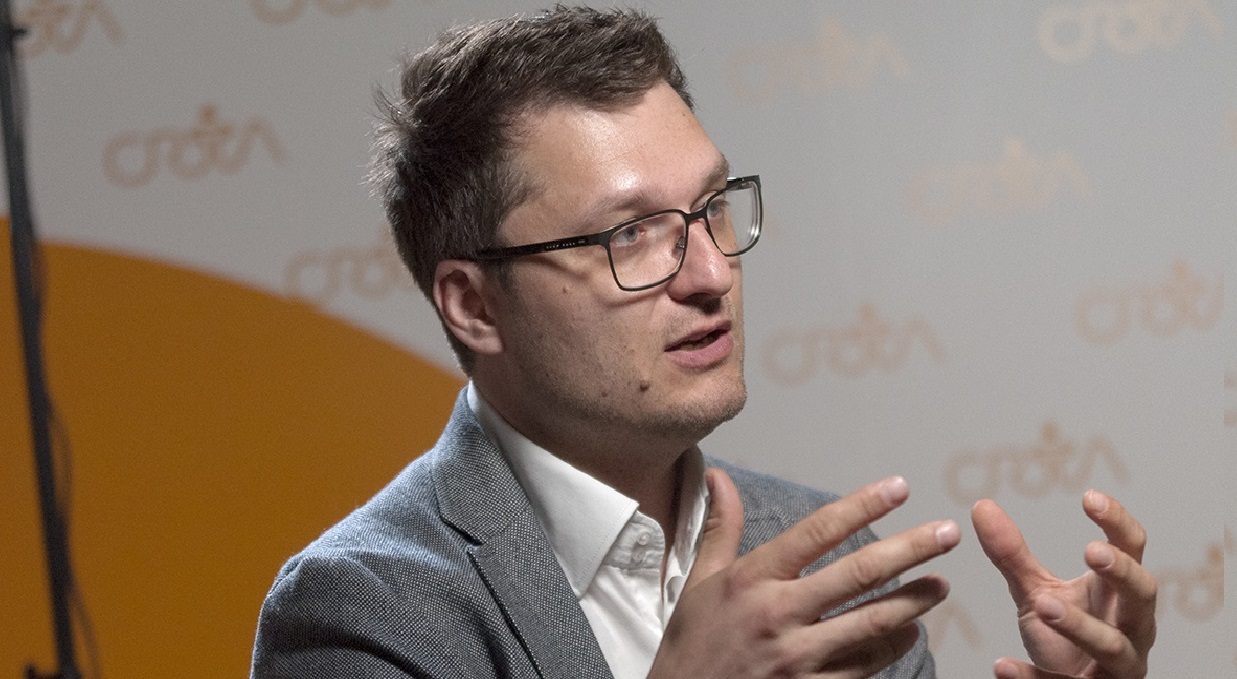Crta’s Program Director speech on the state of democracy in Serbia during the meeting of the European Parliament’s Serbia Delegation
 Photo – Zoran Drekalovic
Photo – Zoran Drekalovic
During the European Parliament’s Serbia Delegation meeting on the post-electoral landscape in Serbia, held on November 4th 2020, attended by the Ambassador of the Republic of Serbia to the EU H.E. Ms Ana Hrustanovic, Deputy Head of Unit for Serbia in the European Commission Mr Christos Makridis and Head of Division ‘Western Balkans’ in the European External Action Service Ms Elsa Fenet, Crta’s Program Director and Chief of the Crta’s Election Observation Mission pointed out that:
- The post-election atmosphere is not encouraging for democracy in Serbia,
- Numerous electoral breaches, despite being thoroughly documented by domestic observers, and then underlined by the ODIHR and European Commission in their latest reports, remain neglected and rejected by the ruling coalition, even described as superficial and with poor argumentation,
- In this situation, where one party deliberately chooses to turn the blind eye to these electoral challenges, right now it is virtually impossible to talk about any kind of a meaningful dialogue. Without mutual recognition that certain problems exist, the space for discussion progressively closes.
Full speech of Rasa Nedeljkov, Crta Program Director and Chief of the Crta’s Election Observation Mission:
On behalf of CRTA, I would like to thank you for the opportunity to address the Delegation.
The parliamentary elections were held in the ambience of a longer trend of declining democracy in Serbia. Key challenges included drastic media inequality in favor of ruling parties which deprived voters of equal and objective information about the electoral offer. Further, the abuse of state resources and office by public officials, as well as pressures on voters and clientelistic practices, were widespread and were followed with poor performance of institutions to prevent or prosecute such malpractices.
While a large part of opposition declared for boycott and was not prepared for dialogue on electoral conditions, the ruling majority opted for simulating pluralism. This was done by introducing core changes in the electoral system, which nobody requested, few weeks before elections, without agreement and public debate, opposite to international democratic standards. This “gerrymandering” sort of speak – did nominally increase the electoral offer to 21 lists, but fair competition was impossible due to the ruling majority’s overwhelming advantage that was capitalised from their decision-making positions and presence in the media, which is well noted in the ODIHR report. Madam Ambassador Hrustanovic was right when she said that 70% of recommendations were fully or partially implemented. However, this could be misleading if we take into account that areas of media equality, pressures on voters, abuses of state resources remain unaddressed. In other words, the government cherry picked those mainly technical measures that did not bring substantial improvements in critical areas.
Parliamentary elections, which looked more like presidential, resulted in the lowest turnout at parliamentary elections since 2000 and finally produced the least pluralistic parliament in Serbia’s multiparty history. Illustration of weak institutions is reflected in the process of forming the government with four months of delays without any rational and publicly presented justification. Also, while the government was not even formed, its mandate was reduced to last only 18 months, as announced by the President Vucic. This is particularly worrying having in mind many processes that are on hold due to the lack of institutional responsiveness to recognise and tackle numerous burning issues, like alarmingly poor performance in the EU accession process with Serbia failing to open a new chapter ever since December 2019. Then media, with the delay in adopting the Action Plan for the Media Strategy that disabled its implementation. Also, the lack of parliamentary oversight and government accountability, as the Parliament failed to make use of committees, to prepare the ground for the new convocation to address the independent institutions’ reports, or burning topics that have recently shaken the public – such as the management of the COVID-19 crisis or the allegations of excessive use of police force against citizens protests in July.
This lack of institutional response is an outcome of the ruling coalition’s intention to neglect problems of weakening democracy and democratic institutions in Serbia. Numerous electoral breaches, despite being thoroughly documented by domestic observers, and then underlined by the ODIHR and European Commission in their latest reports, remain neglected and rejected by the ruling coalition, even described as superficial and with poor argumentation.
In this situation, where one party deliberately chooses to turn the blind eye to these electoral challenges, right now it is virtually impossible to talk about any kind of a meaningful dialogue. Without mutual recognition that certain problems exist, the space for discussion progressively closes.
The post-election atmosphere is not encouraging for democracy in Serbia, in fact we truly fear that its quality will further deteriorate. After the elections, the media gap between the government and opposition again increased, with 75% of extended prime time occupied by the ruling majority. We also witness that democracy advocates remain under constant pressure. As we already heard, civil society organisations are being subjected to opaque investigations, while approximately 15 attacks on journalists monthly were recorded only this year.
With all these considerations, we believe that the new parliament and the government do not have any more excuses, nor obstacles, for not delivering policies and progressing on Serbia’s EU path.
Still, we very much fear that the overwhelming ruling majority is only concerned with window dressing for failing Serbia’s democracy, instead of bringing meaningful improvements towards the truly functioning democracy and the country’s European future.
I am happy to take questions. Thank you, again for the opportunity to address you.








